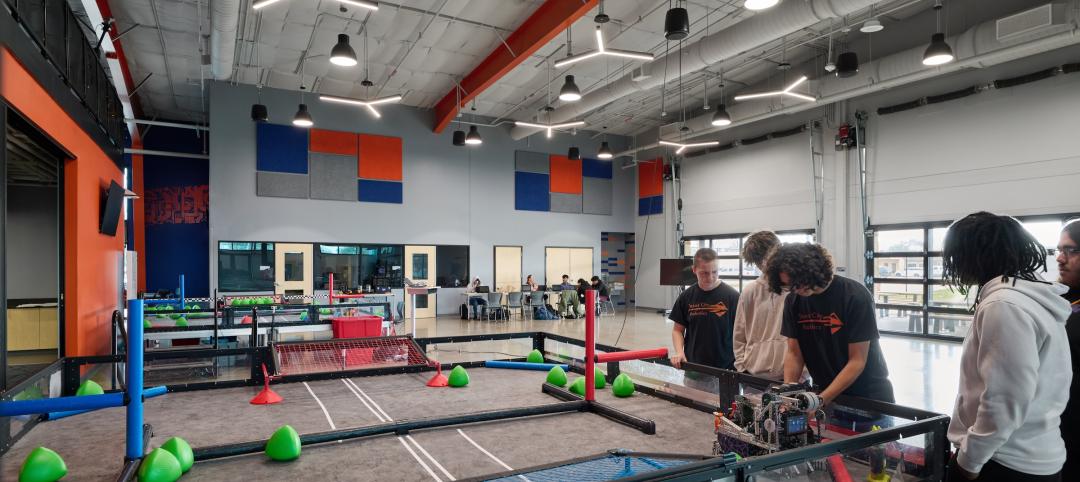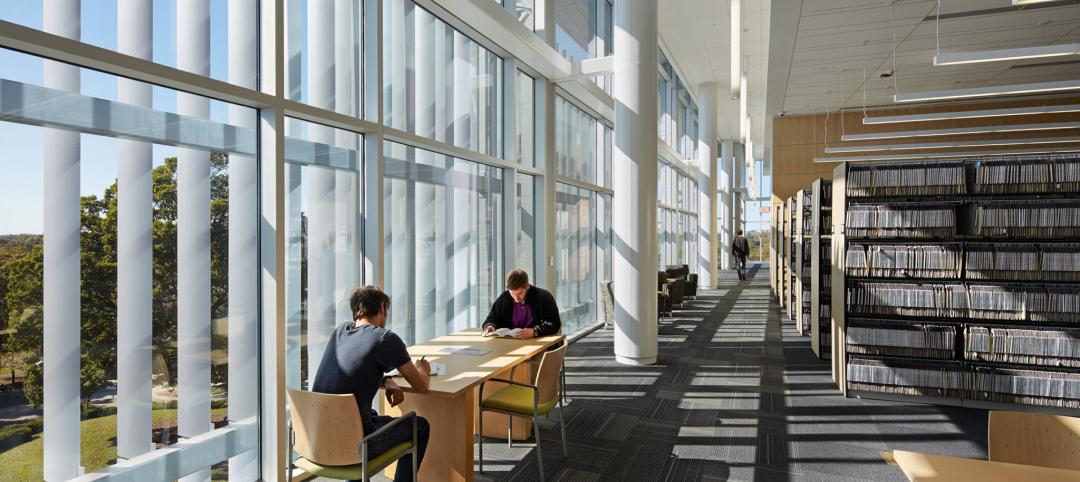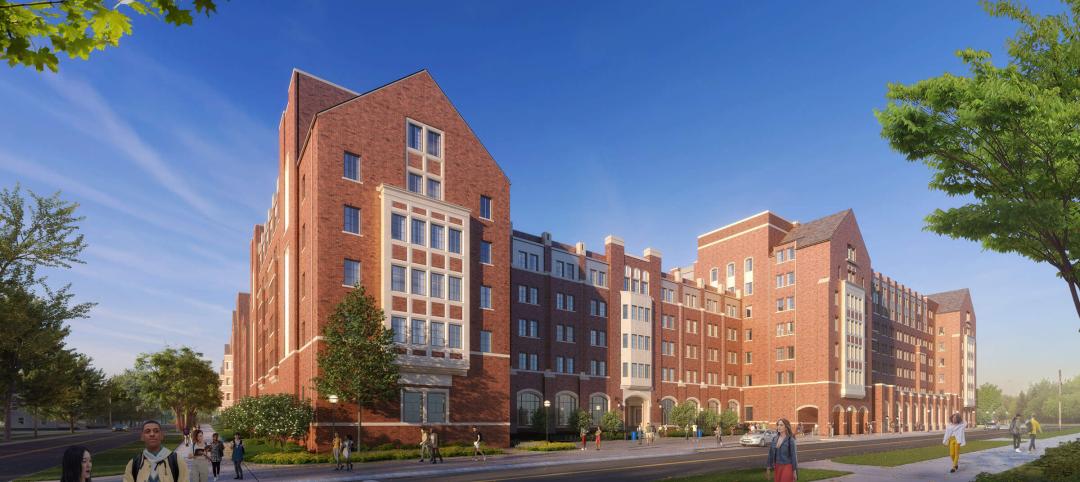3M is playing an important role in the recently announced Better Buildings Challenge, an effort to grow the country's clean energy economy. The initiative aims to improve energy efficiency in commercial buildings by 20% by the year 2020, a move that is projected to reduce energy bills for American businesses by approximately $40 billion per year and to create more than 100,000 jobs.
As a partner in the challenge, 3M has committed to reduce energy use by 25% in 78 of its plants, encompassing nearly 38 million-sf of building space. The company has already achieved significant gains; in 2011 alone, 3M improved energy efficiency in its operations globally by 8.9% compared to the same period last year, and avoided more than $43 million in energy costs. Additionally, more than 150 employee-inspired energy projects helped the company save nearly $7.7 million.
Within 3M, the Renewable Energy Division directs its efforts toward helping customers meet their energy targets by providing energy-saving solutions. 3M Renewable Energy creates products and technologies to advance the solar and wind industries, as well as energy conservation window films for the commercial building sector. These technologies hold significant promise in helping 3M and other participants in the challenge increase energy efficiency. Notable products in 3M's line include:
- Sun Control Window Films, which use non-metalized nano-technology to create reflectivity that's actually lower than glass. These spectrally-selective interior and exterior films reject up to 97 percent of the sun's heat-producing infrared light to help keep buildings cooler.
- Cool Mirror Film 330, a unique, multilayer optical film designed for low concentration, crystalline silicon photovoltaic (low X CPV) installations. The films reflect only the wavelengths of light that can be absorbed by solar cells, substantially reducing the amount of solar energy that can degrade the performance of CPV systems.
"3M has cut its absolute worldwide greenhouse gas emissions by 72 percent from 1990 to 2010," said Tim Thornton, director of 3M Renewable Energy Division's Energy Conservation business. "We are proud to take part in this challenge and to share our knowledge with others, so we can all move toward achieving this ambitious goal." BD+C
Related Stories
K-12 Schools | Aug 8, 2024
New K-12 STEM center hosts robotics learning, competitions in Houston suburb
A new K-12 STEM Center in a Houston suburb is the venue for robotics learning and competitions along with education about other STEM subjects. An unused storage building was transformed into a lively space for students to immerse themselves in STEM subjects. Located in Texas City, the ISD Marathon STEM and Robotics Center is the first of its kind in the district.
Affordable Housing | Aug 7, 2024
The future of affordable housing may be modular, AI-driven, and made of mushrooms
Demolished in 1989, The Phoenix Ironworks Steel Factory left a five-acre hole in West Oakland, Calif. After sitting vacant for nearly three decades, the site will soon become utilized again in the form of 316 affordable housing units.
Architects | Aug 5, 2024
Mastering the art of project schedule: Expert insights on design and construction
We sat down with two experts in the design field, Ron Dick (Founding Partner and Architect) and Mike Niezer (COO and Architect), to talk about everything you need to know about the entire process.
University Buildings | Aug 1, 2024
UC Riverside’s student health center provides an environment on par with major medical centers
The University of California, Riverside's new Student Health and Counseling Center (SHCC) provides a holistic approach to wellness for students throughout the UC Riverside campus. Designed by HGA and delivered through a design-build partnership with Turner Construction Company, SHCC provides healthcare offerings in an environment on par with major medical centers.
Libraries | Aug 1, 2024
How current and future trends are shaping the libraries of tomorrow
Over the last few years, public libraries have transitioned from being buildings that only store and lend books to being fully featured community centers.
MFPRO+ News | Aug 1, 2024
Canada tries massive incentive program to spur new multifamily housing construction
Canada has taken the unprecedented step of offering billions in infrastructure funds to communities in return for eliminating single-family housing zoning.
Government Buildings | Aug 1, 2024
One of the country’s first all-electric fire stations will use no outside energy sources
Charlotte, N.C.’s new Fire Station #30 will be one of the country’s first all-electric fire stations, using no outside energy sources other than diesel fuel for one or two of the fire trucks. Multiple energy sources will power the station, including solar roof panels and geothermal wells. The two-story building features three truck bays, two fire poles, dispatch area, contamination room, and gear storage.
Contractors | Aug 1, 2024
Nonresidential construction spending decreased 0.2% in June
National nonresidential construction spending declined 0.2% in June, according to an Associated Builders and Contractors analysis of data published today by the U.S. Census Bureau. On a seasonally adjusted annualized basis, nonresidential spending totaled $1.21 trillion. Nonresidential construction has expanded 5.3% from a year ago.
Student Housing | Jul 31, 2024
The University of Michigan addresses a decades-long student housing shortage with a new housing-dining facility
The University of Michigan has faced a decades-long shortage of on-campus student housing. In a couple of years, the situation should significantly improve with the addition of a new residential community on Central Campus in Ann Arbor, Mich. The University of Michigan has engaged American Campus Communities in a public-private partnership to lead the development of the environmentally sustainable living-learning student community.
MFPRO+ New Projects | Jul 31, 2024
Shipping containers converted into attractive, affordable multifamily housing in L.A.
In the Watts neighborhood in Los Angeles, a new affordable multifamily housing project using shipping containers resulted in 24 micro-units for formerly unhoused residents. The containers were acquired from a nearby port and converted into housing units at a factory.

















